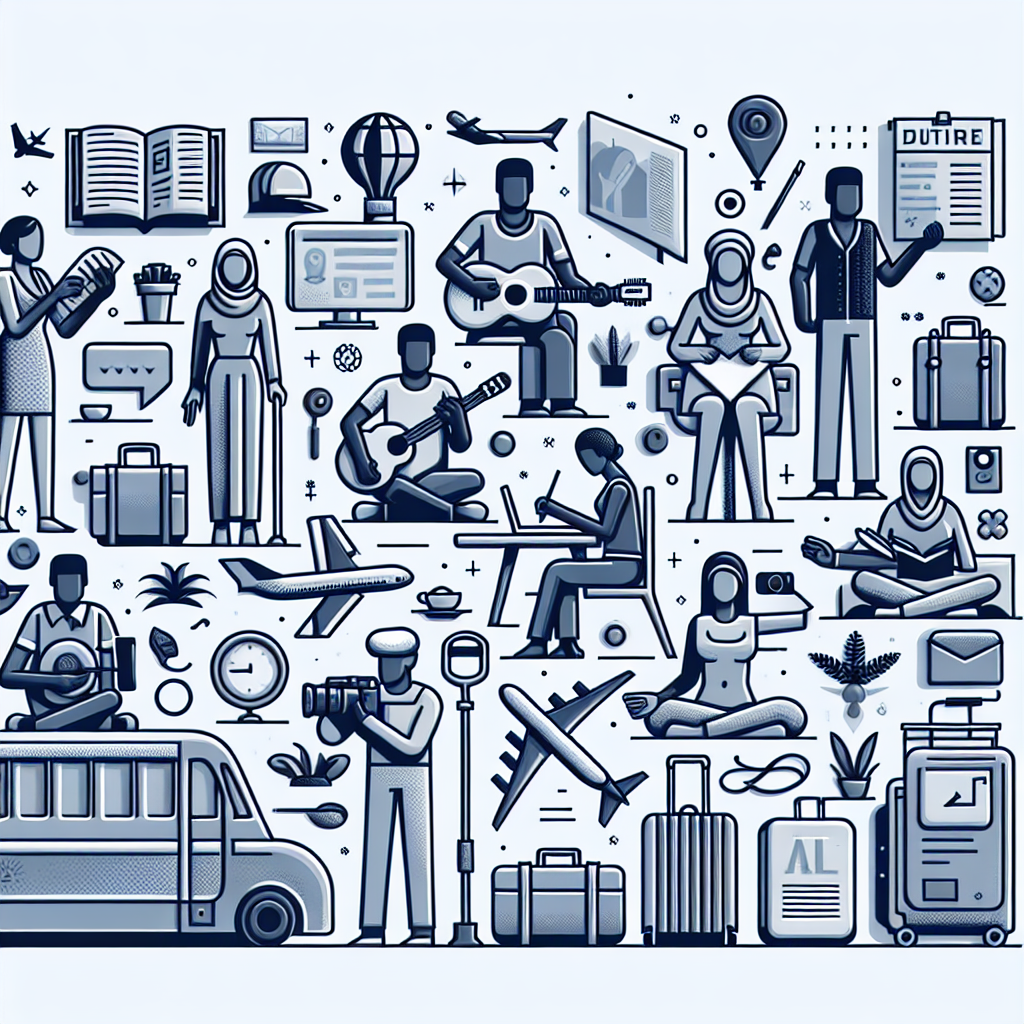The Future of Jobs To Do While Traveling: What To Expect explores how mobility, technology, and changing work cultures will shape the types of income people can earn on the road. Whether you picture a remote software engineer coding from a beach café or a language tutor teaching from a hostel common room, the coming decade will expand possibilities — and introduce new challenges — for work that fits a travel-first lifestyle.
Future jobs to do while traveling: trends to watch
Several macro trends are converging to make travel-friendly work more accessible. Advances in cloud collaboration, cheaper international payments, and the normalization of asynchronous work mean many roles can be decoupled from a fixed office. At the same time, automation and AI will shift demand toward tasks requiring creativity, emotional intelligence, and cross-cultural communication.
Remote-first roles and the gig economy
Expect more companies to adopt remote-first models that welcome distributed teams. This will increase openings for traditional salaried positions that are travel-compatible (engineering, design, product management) and expand gig opportunities such as specialized consulting, freelance marketing, and creative services. Platforms that match short-term projects to skilled workers will continue evolving, offering better vetting, payment protection, and reputation systems.
Micro-entrepreneurship and creator income
The creator economy and micro-entrepreneurship will create sustainable pathways for people who monetize skills directly: niche newsletters, paid membership communities, online courses, and location-based travel services (guides, curated experiences). Monetization tools are improving, so independent workers can build repeatable revenue streams without a permanent address.
Skills and infrastructure that matter
Travel-friendly workers should invest in a mix of hard and soft skills. Technical literacy (cloud tools, basic cybersecurity, digital payments), strong written communication for asynchronous collaboration, and cultural agility will be highly valued. Reliable digital infrastructure — VPNs, mobile hotspots, and multi-currency banking or payment platforms — will be part of the essential toolkit.
For students and early-career travelers looking to find travel-compatible gigs, a curated list of job boards can be helpful; consult the ultimate guide to job boards for college students in the USA (free and paid options) for platforms and strategies tailored to learners and part-time schedules.
Regulatory and financial considerations
Cross-border work raises questions about taxes, visas, and employer compliance. Countries are experimenting with digital nomad visas and streamlined tax rules, but obligations vary widely. Workers should research local regulations and consider speaking with tax professionals if travel becomes long-term. Payment and banking options that support multi-currency operations will reduce friction for both freelancers and employers.
Technology’s double-edged role
AI and automation will both displace routine tasks and create new specialized roles. Tools that automate content generation, data analysis, and customer support will raise the bar for human-led services: differentiators will be strategy, cultural nuance, and relationship-building. Workers who learn to leverage AI as a force multiplier — not a replacement — will have a competitive edge.
Health, community, and sustainability
As remote travel becomes more common, attention to mental health, professional networks, and sustainable travel choices will grow. Coworking and coliving spaces that combine reliable internet with community events will continue to pop up in popular hubs. Responsible travelers will prioritize low-impact transport options and local partnerships that support host economies.
- Prioritize portable, high-value skills: coding, UX, copywriting, language teaching, and digital marketing.
- Build reputation through consistent deliverables, testimonials, and a clear online portfolio.
- Plan finances for variable income: emergency savings, multi-currency accounts, and invoicing systems.
Preparing for the transition
Start by testing short trips while maintaining a steady income stream. Create systems that let you work asynchronously: templates for client communication, automated billing, and scheduled work blocks that respect time-zone differences. Invest in networking both online and in-person to maintain a pipeline of opportunities.
Research and policy insights
Policy and international labor research provide useful context for long-term planning. For a broad analysis of how work is changing globally, see the OECD analysis of the future of work, which examines technological, demographic, and policy trends affecting employment.
FAQ
Q: Can I realistically travel long-term and keep a stable income?
A: Yes, many people combine remote salaried roles, recurring freelance contracts, or creator revenue. The key is predictable clients, diversified income sources, and financial buffers for gaps.
Q: What are the biggest legal risks?
A: Tax residency, visa status, and employment law compliance are the main concerns. Short-term travel is simpler; long-term or country-to-country work requires research and sometimes professional advice.
Q: Which platform types are best for finding travel-friendly work?
A: Specialist remote job boards, freelancer marketplaces, and niche communities for creators or tutors are effective. College students should consult guides that list beginner-friendly and vetted options for part-time remote roles.



